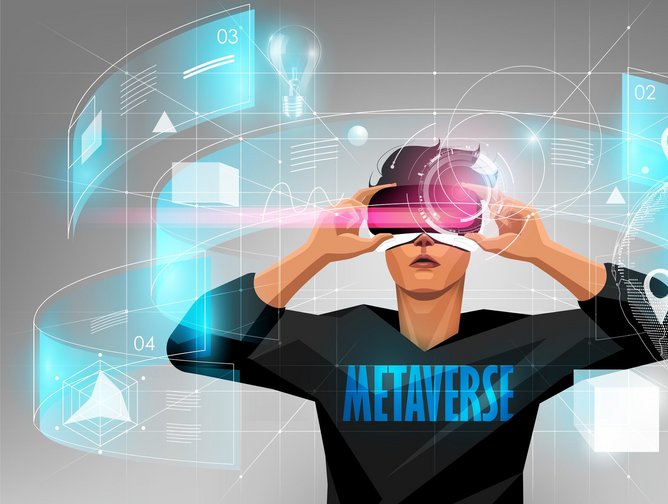Meta and the booming metaverse vision
After relaunching as Meta in the last quarter of 2021, the group reportedly spent $10bn promoting the concept of the ‘metaverse’ which is already being embraced by a number of virtual reality entrepreneurs, despite not yet being in existence.
Just recently, metaverse real estate became available through a project called Verse Estate. In collaboration with the biggest French artist, Vincent Faudemer, the entity is launching the first “ultra-realistic villas and apartments that you can officially own in the Metaverse,” with the tagline, “You’ll also have the option to invite your friends or family all around the world to visit your apartment or villa in virtual reality.”
So, users can now invest in an off-plan virtual property that is situated on the off-plan platform of the metaverse.
Data shows that Meta owns the world’s second-largest digital advertising platform after Google, but it has also been hit by privacy changes on Apple’s iOS operating system, which reduce the ability of brands to target and track their advertising on Facebook and Instagram. This change alone could impact Meta to the tune of $10bn for 2022, the firm has said.
Speaking about the losses, Sachin Mittal, head of telecom and internet sector research at DBS Bank, told the BBC, “Clearly Meta got more impacted compared to its rivals as other social media like Snap posted healthy results,” said Sachin Mittal, head of telecom and internet sector research at DBS Bank.
“While there has been a broad negative impact on the whole tech sector, we reckon players with lower reliance on targeted ads or better algorithms to cope with Apple’s changes would still do well.”
Meta vs real life
Finally, other sources are debating that Meta’s share price plummet could even be terminal because it’s not yet realised, and the real world is simply more attractive than the virtual one. For example, the platform makes money from advertising. However, the company’s branding has been changed to represent a concept – the Metaverse – a thing that doesn’t even exist yet, despite what virtual real estate agents say.
And while Zuckerberg has pledged to spend billions of dollars on developing Meta, the latest evidence suggests people are not so keen on living in a virtual world, and that actual reality is their preferred space.
As David Ryan Polgar writes in his recent Built In blog post, “If ever there was a time for VR to really go mainstream, the physical distancing that Covid required should have offered the ideal conditions. Bereft of physical interactions, VR seemingly offers the very social connectivity we’ve longed for. Chatting with someone on WhatsApp doesn’t feel the same as being together physically in a room, but VR promises a sense of “presence” that mimics reality. It is a form of social connectivity greater than social media.”
He adds, “The problem, however, is that all forms of social connectivity are not equal. VR, along with the metaverse, promises social connectivity, but it may not be the kind of visceral connection we are really after.”
Credit: Source link




















